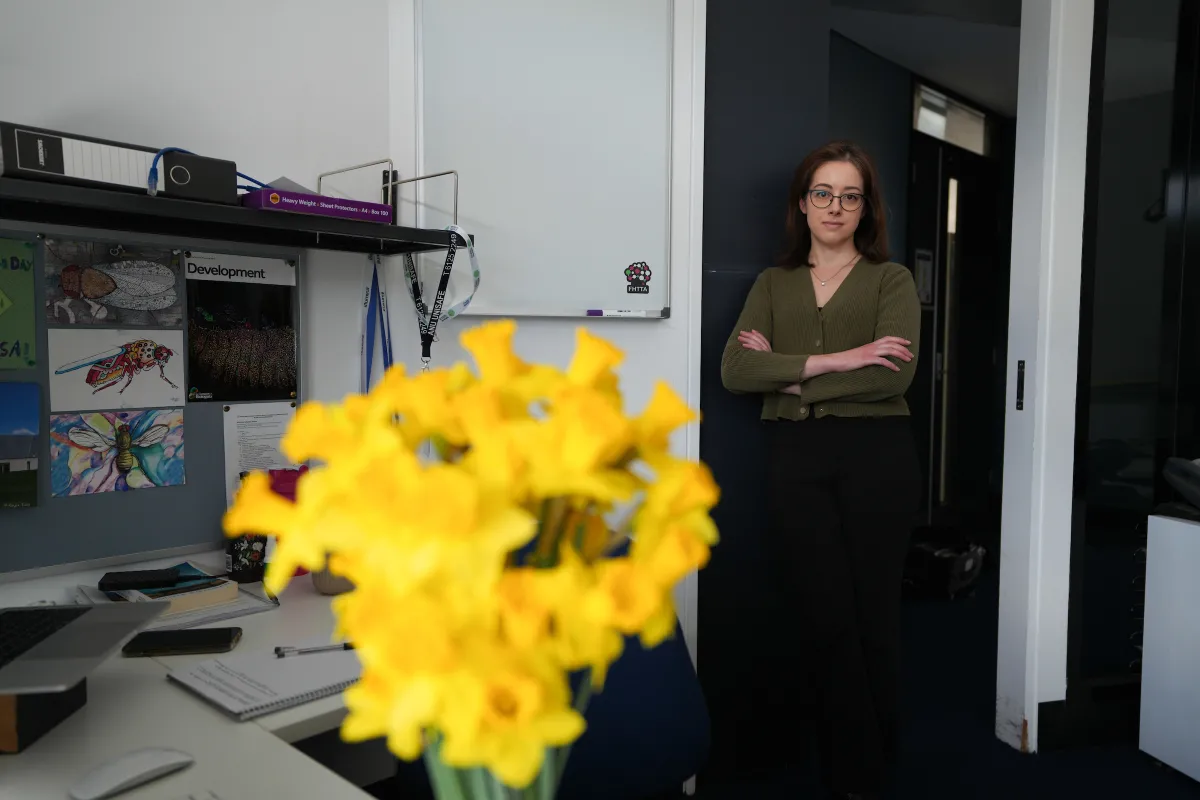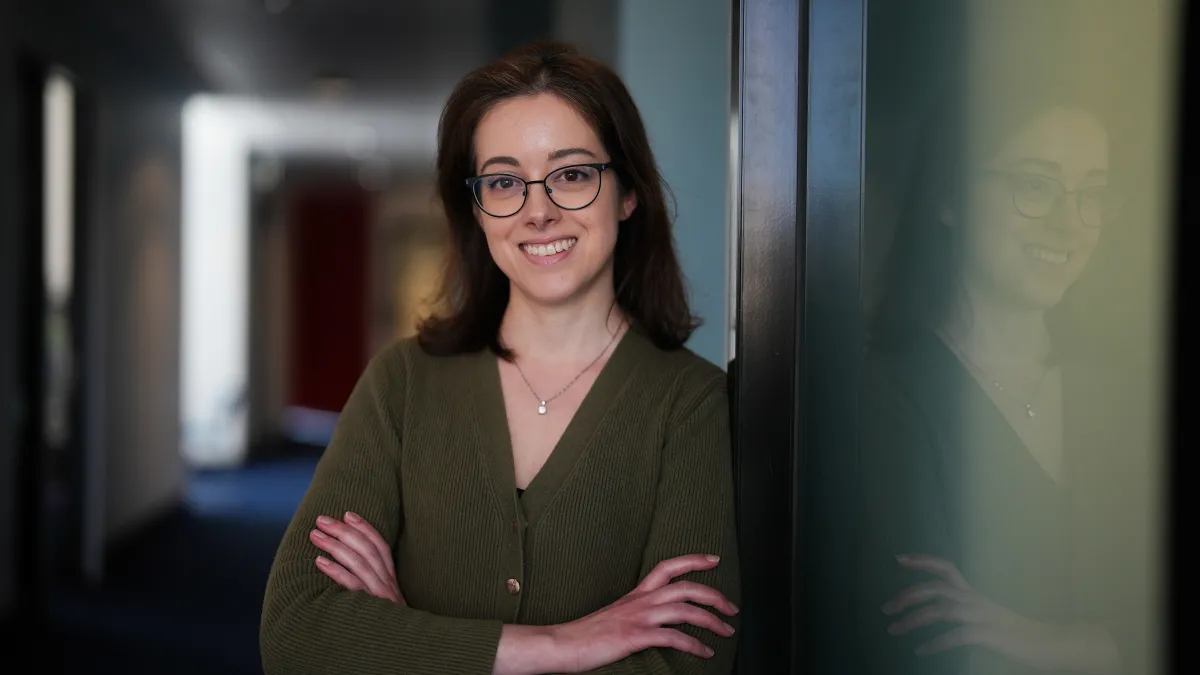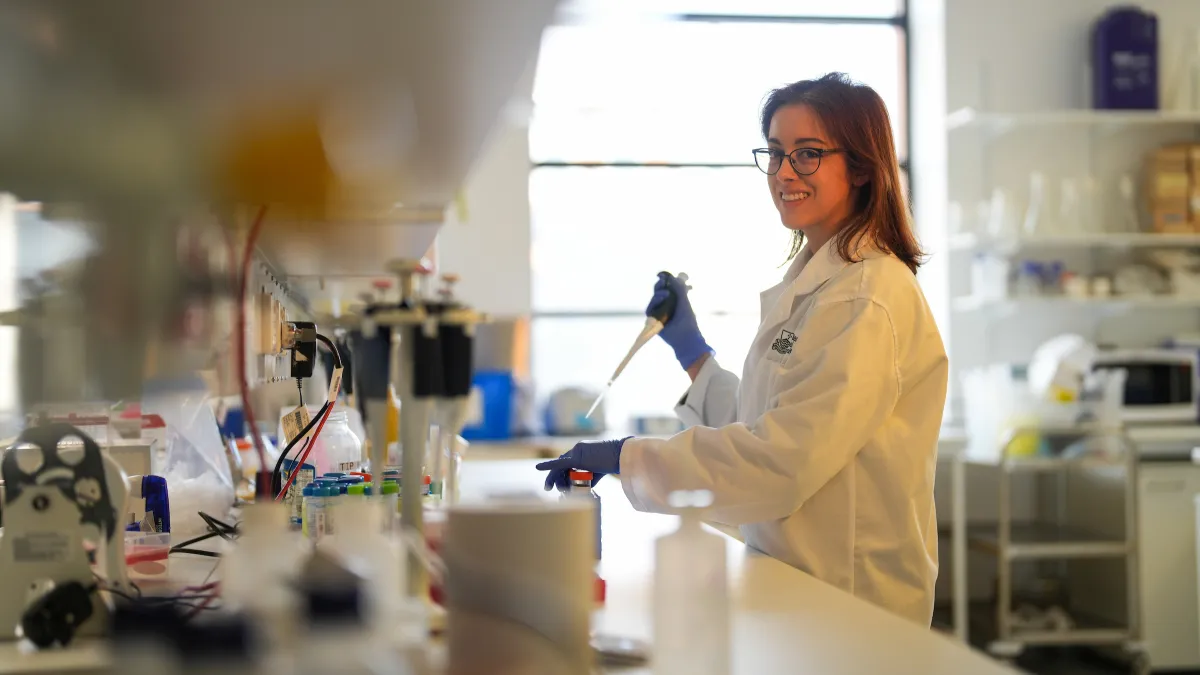Being a poppy in a field of daffodils: Unravelling the cellular ecosystem in Cancer

Dr Teresa Bonello from the Genome Sciences and Cancer Division at JCSMR. (Photo: Tracey Nearmy/ANU)
In the vast field of cancer research, where many focus on the obvious—like daffodils standing tall in a bright meadow—meet Dr Teresa Bonello, the poppy, distinct and dedicated to exploring the often-overlooked yet crucial elements of the tumour microenvironment.
At the John Curtin School of Medical Research (JCSMR) at the Australian National University, Dr Bonello’s work stands out, highlighting how the context around cancer cells, their cellular ecosystem, can dramatically influence cancer’s initiation, progression, and resistance to treatment.
“We now understand that the context in which cancer cells exist has significant consequences for their behaviour and response to treatment,” says Dr Bonello.
Daffodil Day, one of Cancer Council Australia’s most beloved fundraising initiatives, holds special significance for Dr Bonello. “The money supporting this research comes from an inspiring community of people who raise funds for the Australian Cancer Council,” she shares. “I feel honoured that Daffodil Day falls on my birthday this year; it feels like an affirming nod to keep moving forward and digging deeper.”
A key focus of Dr Bonello’s research is on the oncoproteins YAP and TAZ. “These proteins are commonly activated in tumour cells, but they also play a role in the tumour microenvironment, where they promote malignancy,” she explains.
This research is particularly impactful in addressing triple-negative breast cancer (TNBC), a challenging subtype due to its lack of druggable targets. “The tumour microenvironment is a major determinant of how patients respond to immunotherapy, so modifying it could enhance immunotherapy’s effectiveness,” Dr Bonello adds.
“My goal is to maintain a bidirectional flow of information between the clinic and our work at the lab bench” says Dr Bonello. (Photos: Tracey Nearmy/ANU)
Before joining JCSMR, Dr Bonello was deeply involved in epithelial biology research at the University of North Carolina, Chapel Hill, using Drosophila (fruit flies) as a model. “What many don’t realise is that Drosophila research has led to six Nobel Prizes and pioneered the identification of oncogenes and tumour suppressors in human cancer,” she shares.
This background provided a strong foundation for her move to Australia, where she expanded her research into epithelial organoid and mouse models. JCSMR was the perfect place for this expansion, being one of the few hubs for Drosophila research in Australia. “Being part of this community has been incredibly valuable,” says Dr Bonello. “It’s been vital to connect with exceptional Drosophila researchers at JCSMR and to contribute to training the next generation of researchers.”
The supportive environment at JCSMR has been instrumental in her success. “The people are my favourite part of JCSMR!” she enthuses, highlighting the mentorship she received from Professor Leonie Quinn and the collaborative spirit that has fuelled numerous projects.
This collaborative spirit extends beyond the lab. “Last year, I helped organise the European Molecular Biology Laboratory (EMBL) Australia PhD Course,” Dr Bonello recalls. “It was so rewarding to connect with people across the school and experience how generous my JCSMR colleagues are with their time!”
Recently, Dr Teresa Bonello, alongside Dr Rachel Woodhouse, was awarded the Cancer Council ACT annual grant, a significant milestone in their careers. “During my PhD at the University of New South Wales, I developed new therapeutics to treat neural crest-derived cancers, supported by a three-year Cancer Council Grant,” she explains. This early support was instrumental, and receiving their backing again for a new project is a meaningful continuation of this relationship.
The new project, developed in collaboration with clinical experts at Canberra Hospital, aims to closely align research with patient data. “Working with clinicians to ensure we design the project right has been incredibly constructive, sometimes humbling,” Dr Bonello notes. “My goal is to maintain a bidirectional flow of information between the clinic and our work at the lab bench.”
In addition to her research, Dr Bonello is actively involved in supporting women in the health and medical research sector. “I currently serve in the ACT Peer Advisory Group for Franklin Women, a social enterprise that enables women in the health and medical research sector to thrive,” she says. “I’d love to see more women at JCSMR benefit from the professional development and training opportunities offered by Franklin Women.”
As the ACT State Representative for the Australia and New Zealand Society of Cell and Developmental Biology (ANZSCDB), Dr Bonello is also dedicated to connecting students and early-career researchers with cell and developmental biology research groups at both local and national levels. “I encourage students and ECRs to reach out if they want to better connect with the cell and developmental biology community.”
Learn more about the Daffodil Day 2024 | Cancer Council


